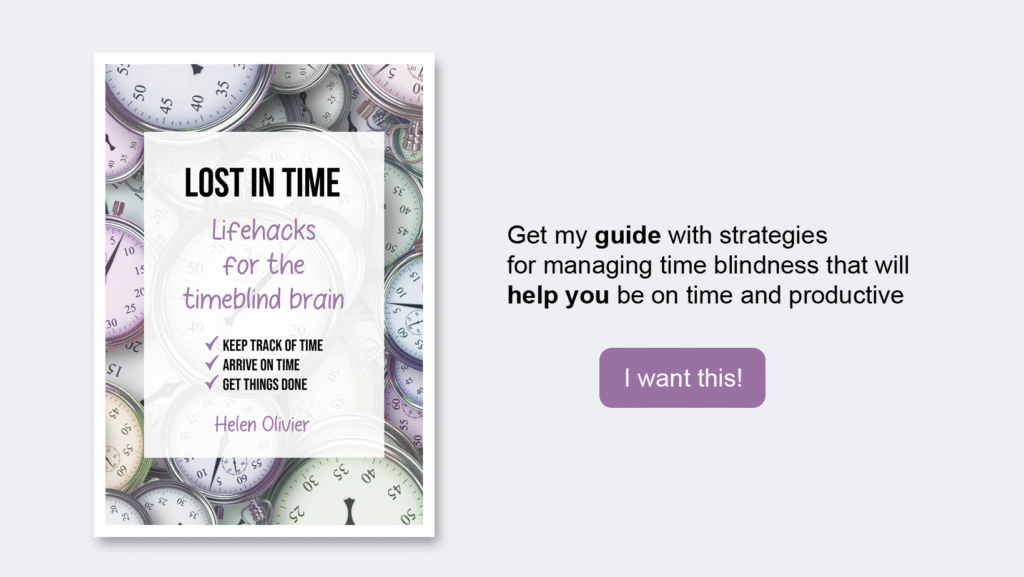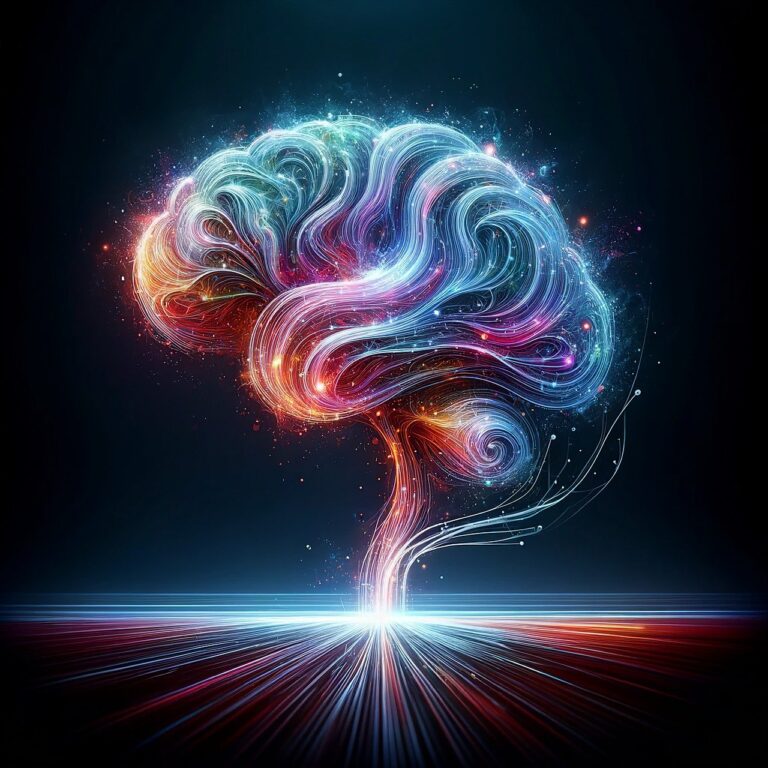For most people with ADHD, caffeine doesn’t work as it would for neurotypical people. Instead of a boost of energy, it makes them calm and sleepy. I’m one of those odd ADHDers for whom caffeine works normally. I have asked around and apparently, it happens. But if you are not one of the fortunate, what to do to get an extra kick when you have stuff to finish? Here are some tips on how to get energy when coffee doesn’t work for you!
Buckle up, because we are going to get science-y.
Disclaimer: This blog is based on personal experience and is not medical advice. Always consult a qualified healthcare professional before making changes to your health, treatment, or medications.
Also, please note that there are several affiliate links in this article. If you buy anything through them, you help to support this blog and will have my undying gratitude, and it doesn’t cost you anything extra!
1. Cold shower
When cold water hits your skin, your body responds by activating the sympathetic nervous system, which is responsible for the “fight or flight” response. This increases heart rate and blood circulation, which wakes you up and provides a quick jolt of energy.
The sudden shock of cold water causes your body to release adrenaline, which makes you more alert. This can counteract ADHD-related sluggishness or “brain fog.”
Cold exposure also increases dopamine production. This is a neurotransmitter that our ADHD brains often lack. Higher dopamine levels improve focus, mood, and motivation, which helps you feel more energized and ready to tackle tasks.
2. Exercise
Physical activity stimulates dopamine and norepinephrine, two neurotransmitters that our ADHD brains often lack. Even short bursts of movement, like a brisk walk, dancing to music, or stretching, can improve energy and focus. It also triggers the release of serotonin and endorphins, which will help you feel good.
Exercise improves blood flow and oxygen delivery to the brain and muscles, which reduces feelings of fatigue. It essentially mimics the effects of ADHD medications like stimulants, but naturally.
As a bonus, the types of exercise that require coordination, like yoga, dancing, or martial arts, engage multiple parts of the brain, which helps improve executive functioning. One type of exercise that is especially helpful for executive functioning is any kind of balance exercise. It’s because your brain uses the same part of the brain – the cerebellum – for both balance and executive functioning, so when you train it, it improves both those aspects.
3. Energetic music
When I need to get stuff done, I put on the playlist called “Hype Spanish Workout”. Quick, upbeat, energetic music really helps me. Not only it gives me the kick of energy I need, but also serves as a signal to my brain that now we are doing the work.
Listening to upbeat, high-tempo music can stimulate the release of dopamine. Also, ADHD brains crave stimulation, and energetic music is both auditory and emotional activation. It helps combat boredom and sluggishness by keeping the brain entertained and alert.
Lifehack: Listen to video game music, which is designed specifically to keep players engaged and focused.
4. Spicy food or drink
Spicy foods, like chili peppers, contain capsaicin, which triggers your body’s “fight or flight” response. This can make your heart beat faster and temporarily increase blood flow, which wakes you up and gives you a burst of energy.
Capsaicin also tricks your brain into thinking you’re in mild pain, which prompts the release of endorphins (your body’s natural “feel-good” chemicals). Endorphins can improve mood and alertness, which feels like an energy boost.
Also, ADHD brains love novelty and intense sensory experiences. The spiciness of the food provides a stimulating, engaging experience that can “wake up” a brain stuck in boredom or fatigue. You can try a spicy tea, such as ginger or cayenne-infused blends, for a warming energy kick.
5. Stimulating breath technique
A breathing exercise from yoga, the “Bellows Breath” (or Bhastrika Pranayama) stimulates the diaphragm and makes your body more alert. Keep your mouth shut and quickly inhale and exhale through your nose with short, quick breaths for 10 seconds. Take a break and repeat several times.
The quick, forceful inhalation and exhalation during Bellows Breath mimic the body’s natural response to stress or heightened alertness, activating the sympathetic (“fight or flight”) nervous system. This increases heart rate and blood circulation, which provides an immediate energy boost and makes you feel more awake and focused.
Rapid breathing encourages the diaphragm to move more efficiently, which increases the amount of oxygen entering your lungs and bloodstream. More oxygen delivered to the brain can improve focus, mental clarity, and cognitive function.
6. Sunlight or light therapy lamps
Natural sunlight or light therapy boosts serotonin and dopamine levels, which are crucial for mood and energy. Exposure to bright light (especially in the morning) increases alertness, enhances mood, and improves cognitive performance. It can boost your energy and help you keep focused.
Light exposure helps your body produce cortisol (a stress hormone) during the morning hours, which naturally helps you feel awake. By using a daylight lamp or exposing yourself to sunlight in the morning, you signal your body that it’s time to be alert and engaged.
For me, natural sunlight definitely creates serotonin. I’m much happier in summer, while in winter, I have seasonal depression. My friends tell me I’m solar-powered! When I use the daylight lamp, I notice that I have more motivation, but not a much better mood. But I’ll take what I can get. And, of course, your mileage may vary.
I use a Beurer lamp, so I can vouch for that, but you can get a much cheaper Verilux HappyLight that should do the job.
7. A power nap
When nothing else helps, try a power nap. 20 minutes is long enough that you will feel the benefits of the first couple stages of sleep. But be careful not to sleep longer, because you will probably enter a deeper sleep phase and if you wake up in the middle of it, it will result in feeling sluggish.
During a power nap, your body and brain get a chance to rest and recover without entering deep sleep. Napping improves memory consolidation, learning, and concentration. It also helps refresh the brain and clear mental “clutter. It can boost attention, which makes it easier to refocus on tasks after the rest.
To avoid messing with your nighttime sleep schedule, don’t nap after 3 p.m.
8. Drink water
Are you feeling brain fog? Maybe you aren’t drinking enough water. Dehydration can make you tired and worsen your attention and short-term memory. It also makes you irritated.
It’s better to drink water than flavored drinks like soda. But if you can’t make yourself drink plain water, any fluid is good. You can also eat more foods that contain a lot of water, like watermelon, strawberries, or lettuce.
You should drink six to eight glasses of water a day. If you forget to drink because of ADHD, set reminders on your phone, for example in the app Finch.
9. Eat sugar with protein
Sugary snacks can give you a quick energy boost. Eating sugar can increase dopamine, which helps you stay motivated and improve your mood. It has downsides, though: When you eat a sugary snack, your blood sugar levels rise rapidly, but they will also rapidly fall. This crash can leave you feeling even more tired and make your ADHD symptoms worse.
But if you combine sugary snacks with protein and fiber, they can provide sustained energy rather than a short-lived spike. For example, pairing fruit (natural sugar) with nut butter (protein) provides both quick and longer-lasting energy. Protein helps stabilize blood sugar levels and supports dopamine production. Try adding nuts or cheese, hard-boiled eggs or yogurt to your sweet snack and you will enjoy more steady energy.
10. Lion’s Mane and Cordyceps
I have noticed people mentioning these mushrooms in ADHD Facebook groups, and when I tried them, I found out that they help with motivation. You may not notice it, because they don’t change how you feel very much. Their effect is a subtle impulse to get things done. My friends with ADHD have tried them and reported the same results.
Research suggests that Lion’s Mane can help improve mental clarity and focus. It can be particularly useful in reducing the “brain fog” often associated with ADHD. It may also help regulate mood by supporting the growth of brain cells involved in serotonin and dopamine production. It’s especially helpful for boosting focus and memory over time.
Cordyceps is known for its ability to increase ATP, the molecule responsible for storing energy in cells. This leads to enhanced physical endurance, which makes it a great option for ADHDers who experience fatigue or low energy levels. It may also increase oxygen uptake and improve blood flow, which can enhance brain function.
It is recommended to take these mushrooms on an empty stomach in the morning. Also, take them only 5 days a week and take a 2-day break afterward.
I use a local Czech brand called BrainMax, but it seems that these organic capsules from a small business can be a good alternative: you can get Lion’s Mane here and Cordyceps here.
You can also try this coffee alternative with Lion’s Mane, Cordyceps, Turkey Tail, Chaga, and Reishi mushrooms. It has Ashwagandha and Maca too, which are also supposed to help with energy.
(Please note this is not medical advice and consult any supplement with your doctor.)
11. Ginseng extract
Ginseng extract, particularly from species like Panax ginseng (Asian ginseng) and Panax quinquefolius (American ginseng), has a reputation for enhancing energy, focus, and overall well-being. Ginseng contains ginsenosides that improve brain function by enhancing neurotransmitter activity and increasing blood flow to the brain. It provides sustained energy without the jitteriness associated with caffeine.
This herb is also known as an adaptogen, meaning it helps the body adapt to stress and maintain energy levels. It does this by reducing fatigue and enhancing the body’s stress response. It also increases the level of dopamine in your brain.
You can get quality Ginseng extract from Prince of Peace here.
(Please note this is not medical advice and consult any supplement with your doctor.)
12. Chew Gum
According to some studies, chewing gum helps you to be more alert and focused. The act of chewing increases heart rate and stimulates blood flow to the brain, which delivers more oxygen and nutrients. It can also trigger a small release of dopamine. Chewing gum has been linked to better short-term memory and task performance.
Chewing gum also engages the jaw and mouth in a repetitive motion, which serves as a form of sensory stimulation. The act of chewing keeps the brain engaged and can help fight fatigue or mental zoning out.
13. Try aromatherapy
Certain smells can help jump-start your senses and may help you with focus and energy. To feel more awake, try eucalyptus, lemon, peppermint, rosemary, lemon, or tea tree. Essential oils stimulate the limbic system, which is the part of the brain associated with emotion, memory, and motivation. Stimulating the limbic system can help regulate mood, increase energy, and improve focus.
Aromatherapy also provides a novel sensory experience. We ADHDers often benefit from sensory stimulation and novel experiences to stay engaged. Aromatherapy provides a non-distracting form of sensory input that can focus our attention.
14. Get a massage
Massage reduces levels of cortisol, the stress hormone, and increases levels of feel-good hormones like serotonin and dopamine. The release of endorphins during a massage can significantly lift your mood.
For ADHDers who experience sensory processing challenges, massage provides deep-pressure input that can help regulate the sensory system. The steady, consistent pressure of a massage can be grounding and soothing.
If you don’t want to spend money on a professional massage, you can take a few minutes to rub your temples, neck, or hands to relieve stress during the day. You can also use tools like massage balls or rollers.
~~~
Did you find this blog post useful? You may also be interested in my ebook Lost in Time: Strategies for Managing Time Blindness. It has useful tips and advice for those of us who leave everything for the last possible moment and always run late. You can get it in my Gumroad shop.

Helen Olivier is a neurodivergent writer, AuDHD explorer, and professional overthinker with 40+ years of lived experience in the wonderfully weird world of ADHD + autism. She writes for people who’ve been told they’re “too much” or “not enough,” offering comfort, clarity, and the occasional executive dysfunction survival hack. Her blog is her way of turning daily chaos into useful insights for other neurodivergent folks.
This blog is based on personal experience and is not medical advice. Always consult a qualified healthcare professional before making changes to your health, treatment, or medications.





